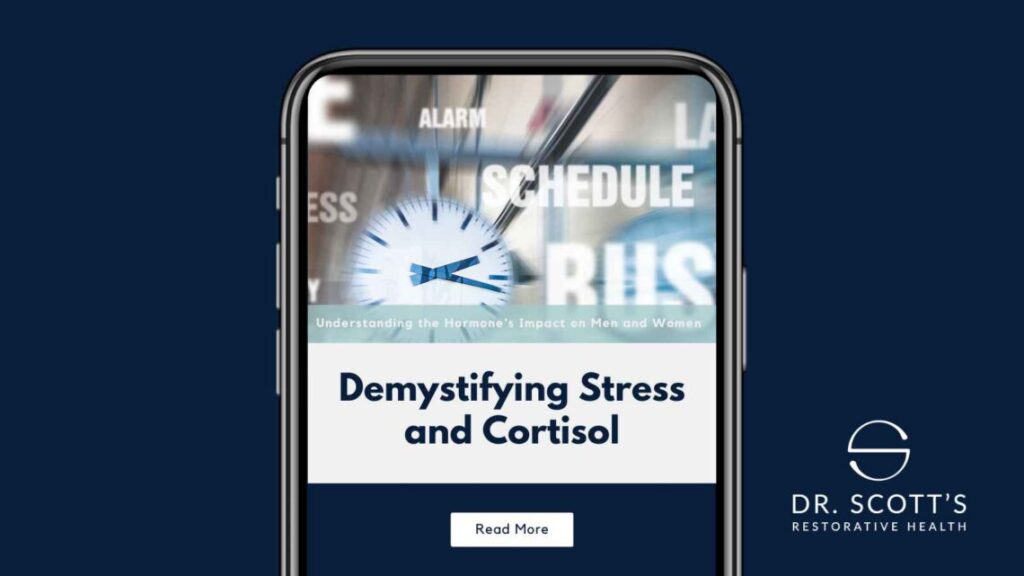Demystifying Stress and Cortisol – Stress, an unavoidable aspect of modern life, can manifest in various forms, from work-related pressures to personal challenges. While occasional stress is a normal physiological response, chronic stress can have detrimental effects on overall health and well-being. At the heart of this stress response lies cortisol, a hormone produced by the adrenal glands in response to stress. While cortisol plays a vital role in regulating various bodily functions, chronically elevated levels can lead to a myriad of health concerns.

Understanding Stress and Cortisol
Cortisol, often referred to as the “stress hormone,” is released in response to perceived threats or challenges. It helps the body mobilize resources to cope with stress by increasing energy levels, redirecting blood flow, and suppressing non-essential functions. However, prolonged exposure to stress can lead to chronically high cortisol levels, disrupting the body’s natural balance.
Effects of Chronically High Cortisol
Chronically elevated cortisol levels can have a significant impact on both physical and mental health. Some of the potential consequences include:
- Weight Gain and Metabolic Dysfunction: Cortisol can promote fat storage and increase appetite, leading to weight gain. It can also disrupt insulin sensitivity, making it harder to regulate blood sugar levels.
- Weakened Immune System: Chronically high cortisol can suppress the immune system, making the body more susceptible to infections and illnesses.
- Impaired Cognitive Function: Cortisol can interfere with memory, concentration, and mood, leading to difficulty in decision-making and increased anxiety or depression.
- Cardiovascular Health Issues: Chronically high cortisol can increase blood pressure and cholesterol levels, contributing to cardiovascular risks.
Taking Control of Stress and Cortisol
While eliminating stress entirely is unrealistic, there are effective strategies to manage stress levels and prevent the negative effects of chronically high cortisol. Some helpful approaches include:
- Identifying Stressors: Recognizing the sources of stress is crucial for developing effective coping mechanisms.
- Mindfulness and Relaxation Techniques: Practices like meditation, deep breathing, and yoga can help calm the mind and reduce stress hormones.
- Regular Exercise: Physical activity effectively releases endorphins, which counteract the negative effects of cortisol.
- Prioritize Sleep: Adequate sleep is essential for stress reduction and overall health.
- Seek Professional Help: If stress becomes overwhelming or significantly impacts daily life, seeking professional guidance can be beneficial.
An Integrative Approach to Stress and Cortisol at Dr. Scott’s
Addressing stress and cortisol requires a holistic approach that encompasses lifestyle modifications, stress management techniques, and, if necessary, professional support. By adopting a comprehensive approach, individuals can regain control over their stress levels, optimize their health, and enhance their overall well-being.
If you think you may be suffering from the effects of stress, schedule a call with us today. The longer you put off addressing this issue, the longer it will take to regain your health.
Please find us on Facebook and Instagram to keep up with our specials and offerings.





